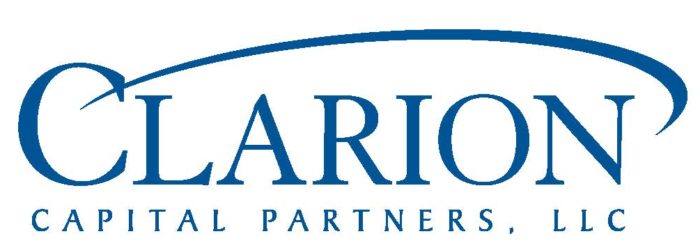Clarion Capital Partners & Founder Marc Utay Featured in Oct/Nov/Dec 2015 Profile Magazine
Clarion Capital Partners Creates a Legacy of Growth
Since founding Clarion Capital Partners in 1999, Marc Utay has followed his passion for investing in the development of promising young companies
IN CONVERSATION WITH AMANDA GARCIA
For Marc Utay, investing capital means far more than dollars. While financially backing growth companies is certainly part of his role as managing partner of Clarion Capital Partners, his definition of success includes taking a company or entrepreneur under the wings of Clarion and giving them all the tools they need to accelerate their company’s development. That means building well-rounded management teams, instituting budgets, audits, and strategic plans, and providing financial resources, all to ensure the company’s ability to stand the tests of time and competition. These companies are the legacies of the partners at Clarion Capital Partners and their highly collaborative culture. And whether incubating or developing strategy for a new company, or offering investment critiques for a junior partner, Marc Utay’s love of developing interesting and inspiring businesses and people is contagious—and well worth the risk.
How would you describe the work of Clarion Capital Partners?
Marc Utay: Clarion Capital Partners invests in the lower-middle market, primarily in three industries: business and health-care services, consumer and retail, and media and entertainment. We are typically making control-oriented investments in companies that we’re either buying from the entrepreneur or from a corporation for whom the subsidiary is no longer strategic. At the end of the day, we’re investors in growth. We try to buy companies that, with a combination of investment in management and capital, will get on a strong growth path.
What is your process when purchasing companies?
Utay: Because we’re a business that invests in the lower-middle market, we try to identify a company that has a strong central business proposition—a product or service—that we believe has great potential, and give it the resources to become great. We usually put up part of the purchase price in equity, as well as borrow money from lenders. Then we go through an institutionalization process with the company where we fill out the management team and begin to put it through the paces that a large corporation would go through. It’s a journey that we go on with the company, and that, in and of itself, can create value because it increases transparency and reduces the perception of risk.
Tell me about your role as managing partner.
Utay: Technically, I run the firm. But we have six partners who together put up 15 percent of the equity in Clarion’s fund, so we are a very consensual firm. We make investment decisions as a group, and if we don’t have unanimity, we won’t make the investment.
You must trust your partners incredibly.
Utay: I think we’ve developed a very unusual culture here. I had a long career on Wall Street working for very successful businesses, and out of that I developed a view of the kind of culture where I’d like to work. When I founded Clarion, we brought on people who buy into that culture—which is highly collaborative. There’s a reason for that collaboration, and it’s not just to make everybody feel good. We believe there are some very distinct benefits.
Such as?
Utay: One is that everybody’s judgments come from their experiences in life. No one has experienced everything; we all have blind spots. A culture that insists that everyone’s viewpoint becomes part of the decision-making process is far less likely to make a catastrophic mistake.
What is that process like?
Utay: After everyone has reviewed our due diligence deck, we actually have the most junior person in the room tell us if they would do the deal and why. And then we work our way up the food chain. The first meeting is usually intimidating for new folks, but over time we want to develop them into real investors. The only way to do that is to invite them to be part of the process, form their own opinions, have those opinions challenged, and then listen to others’ opinions.
Link to article: http://profilemagazine.com/2015/clarion-capital-partners/
Back to News
